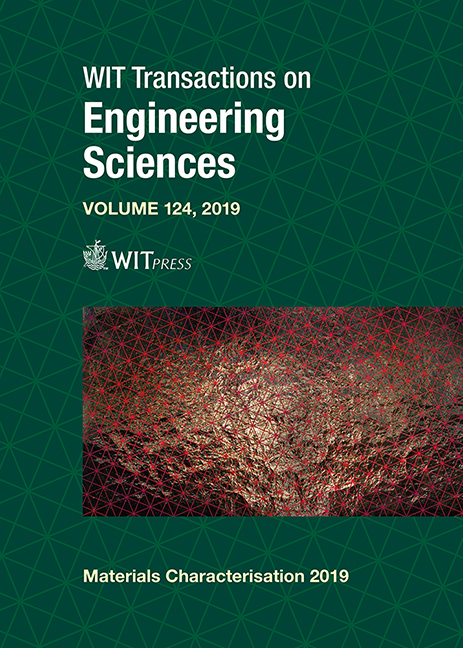EFFECTS OF MAGNESIUM CONCENTRATION AND LAYER THICKNESS ON THE ADHESION OF PHYSICAL VAPOR DEPOSITED ZNMG-ZN BI-LAYER COATINGS
Price
Free (open access)
Transaction
Volume
124
Pages
9
Page Range
63 - 71
Published
2019
Size
1,144 kb
Paper DOI
10.2495/MC190061
Copyright
WIT Press
Author(s)
SOHEIL SABOONI, EMAD GALINMOGHADDAM, RUUD JOHANNES WESTERWAAL, EDZO ZOESTBERGEN, YUTAO PEI
Abstract
For many years, zinc coatings have been regarded as one of the most effective anti-corrosion protective coatings for steel. Recently, it was shown that the addition of even small amounts of magnesium (Mg) to a zinc (Zn) coating can noticeably increase its corrosion protection performance; however, it has also been observed that there is poor adhesion of zinc-magnesium (ZnMg) coatings to advanced high-strength steels. The addition of a more ductile Zn interlayer between the steel substrate and the ZnMg coating is a solution to improve the adhesion problem. In the present study, a series of ZnMg-Zn bi-layered coatings with different Mg concentrations (up to 14.1 wt.% Mg), and also different thicknesses of the Zn and ZnMg layers, were prepared by a thermal evaporation process (physical vapor deposition (PVD)) in order to investigate the adhesion performance and interfacial adhesion strength. The adhesion performance of these coatings was qualified by the BMW crash adhesion test (BMW AA-M223), while the interfacial adhesion strength at the ZnMg/Zn interface was quantified by the scratch test. It was found that the interfacial adhesion strength decreases gradually with an increase in the Mg content of the top layer. The novel finding is that the interfacial adhesion strength at the ZnMg/Zn interface is independent of the thickness of the Zn interlayer; however, the adhesion performance of a ZnMg-Zn bi-layered coating during a bending test is a complex function of different parameters, such as the thickness of the Zn and ZnMg layers, the interfacial adhesion strength and the interfacial defects density.
Keywords
adhesion strength, bi-layered coating, crash adhesion test, magnesium, physical vapor deposition, scratch test, zinc





